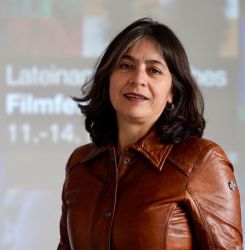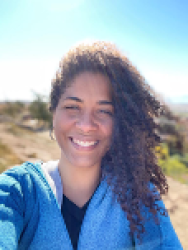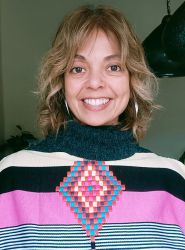Following Diana Tada's performance “Magdalena, como el río,” Pilar Mendoza will discuss the performance with Diana Tada and Bárbara Luci Carvalho, providing commentary and contextualization for the audience.
For more information about the performance, please visit the website of the International Women*'s Theater Festival 2025: https://iftf-frankfurt.com/programm-theater-und-performance/

PhD in sociology. Journalist and Researcher specializing in issues of peace, conflict and memory and in phenomena such as migration, informal economy, and forced displacement. Founder of the Latin American film festival in Deutsches Filminstitut&Filmmuseum Frankfurt. Research associate at the Goethe University Frankfurt.

Bárbara is a theatre pedagogue and interdisciplinary artist. She completed a Master’s in Choreography and Performance in Germany. As a director and educator, she works through decolonial and migrant perspectives, especially in theatre and dance, connecting her artistic background with social, political, and academic contexts.

Diana Tada studied anthropological theater for artistic and research purposes. She worked as a director, actress, and playwright at the Teatro Antropológico de los Andes, where she founded the Art Movement Lab. Tada uses theater as a tool for reconciliation and reconstructing historical memory, primarily in Colombia. She is pursuing a master’s degree in Inter-American Studies with a focus on Theater Science at the University of Bielefeld in Germany. Tada is recognized for her play Magdalena, which was included in the 2013 Colombian Ministry of Culture publication. In 2017, she received the Playwriting Prize in Colombia. The publication, Narrating, Representing, Reflecting ‘Disability’: 21st-Century ‘American’ Perspectives (2024), edited by Wilfried Raussert and Sarah-Lena Essifi, includes her article The Abilities of the Body: A Study from the Theater.
